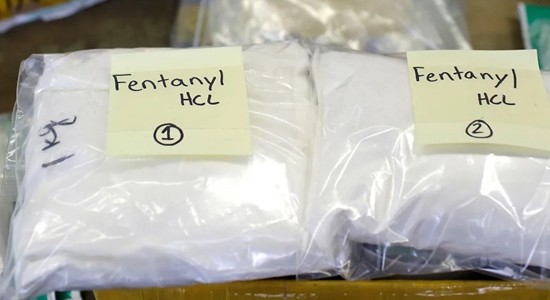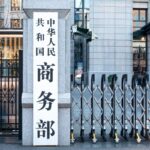
It’s a sign of the times that NPR has an addiction correspondent, not that you’d get much useful information out of him (“These cartels and the drug gangs—they’re earning billions of dollars a year”).
It’s another sign of the times, past times, that the old War on Drugs playbook has been redeployed to counter the fentanyl crisis. For instance, there is an anti-paraphernalia replay in the form of draft legislation to control pill presses. If a press can churn out one million pills an hour, expect an uphill battle on this front.
It has been a staple of the War on Drugs to focus on the supply side of the business, and here we find China mentioned early and often in reporting and legislation. It would be a mistake to imagine its government manufacturing pills and shipping them abroad. Fentanyl, as such, is a scheduled substance even in China. What is happening instead is industrial policy.
Grants and rebates
The Select Committee on the CCP reported in April 2024 that Beijing subsidizes the production of chemical components with “monetary grants and awards to companies,” with such companies “making fentanyl precursors and analogues [able to] apply for state tax rebates and other financial benefits after exporting the product.”
This House Select Committee on the Strategic Competition Between the United States and the Chinese Communist Party found that Beijing:
Holds ownership interest in several PRC companies tied to drug trafficking….
Fails to prosecute fentanyl and precursor manufacturers….
Allows the open sale of fentanyl precursors and other illicit materials on the extensively monitored and controlled PRC internet….
Censors content about domestic drug sales, but leaves export-focused narcotics content untouched.
Chinese “underground bankers” and U.S.-based criminals provide the necessary money laundering after the sale. Also, “Chinese brokers are laundering Mexican drug money through China’s financial system.”
According to the U.S. Justice Department, “These China-based chemical companies often attempt to evade law enforcement by using re-shippers in the United States, false return labels, false invoices, fraudulent postage, and packaging that conceals the true contents of the parcels and the identity of the distributors. In addition, these companies tend to use cryptocurrency transactions to conceal their identities and the location and movement of their funds.”
Most product goes to Mexico, where the “primary distributors of fentanyl and fentanyl analogues in North America are the Sinaloa Cartel based in Sinaloa, Mexico, and the Cartel Jalisco Nueva Generación based in Jalisco, Mexico.” The same folks that control the U.S.–Mexico border.
New to the War on Drugs playbook is lawfare. In October 2023, this same Department of Justice indicted eight Chinese firms and individuals on fentanyl-related charges. All are beyond the reach of U.S. law, one assumes. In lawfare the process is the punishment, but the DoJ’s targets here were also beyond the reach of any process; so the point is lost on us.
Hopium
Just as methadone treatment substitutes methadone for heroin, so Washington is trying to substitute hopium for fentanyl.
In November 2023, China agreed “to restart cooperation with U.S. authorities to counter the flow of fentanyl and other synthetic opioids and their precursors into the United States. This refound willingness comes after more than two years of China purposefully denying cooperation and failing to mount adequate internal enforcement…. What remains to be seen in 2024 is how robust that anti-drug cooperation will be.”
Also in November, Time reported that under the deal, “China would go after chemical companies to stem the flow of both fentanyl and the source material used to make the deadly synthetic opioid…. In return, the Biden administration would lift restrictions on China’s forensic police institute, the people said, an entity the U.S. alleges is responsible for human-rights abuses.”
From PBS News, we learn that by January 2024, American and Chinese officials were committed “to working together to stem the flow of fentanyl into the United States, the head of a visiting U.S. delegation said…. ‘Obviously we need to see the results and we need to see action,’ she said.”
By early April, the president of Mexico was writing to Xi Jinping, “urging him to help control shipments of fentanyl.”
China’s subsidies for fentanyl production remain in effect.
Not to worry: “China is taking tentative new steps to help disrupt the global supply chain fueling the opioid crisis,” The Wall Street Journal advised us on July 4, 2024. Since last November, when Biden and Xi did their deal, “Chinese authorities have quietly shut down some sellers of precursor chemicals used by Mexican cartels to make fentanyl and say they are close to imposing new regulations sought by the U.S. on three additional chemicals.”
“Tentative new steps,” “close to imposing new regulations.” Such are the components of hopium.
A criminal culture
With the best will in the world (an unlikely scenario), the communists would still have to overcome the culture of its own regime.
As a Brookings study put it, “China’s enforcement of precursor and fentanyl analog controls is also complicated by the challenge of systemic corruption in China and the incentive structures within which Chinese officials operate. Chinese government officials also unofficially extend the umbrella of party protection and government authority to actors who operate in both legal and illegal enterprises as well as to outright criminal groups.”
This criminal state will have to clean itself up before it can deal effectively with the fentanyl problem. Meanwhile, the U.S. will need a new playbook. □
James Roth works for a major defense contractor in Virginia.











